Search the Special Collections and Archives Portal
Search Results
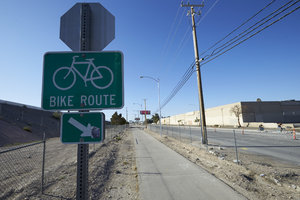
Bike path off East Sahara Avenue and Sandhill Road looking south, Las Vegas, Nevada: digital photograph
Date
2017-09-14
Archival Collection
Description
The bake route off East Sahara Avenue near Sandhill Road.
Image
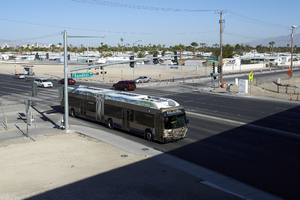
Traffic at the intersection of East Sahara Avenue and Sandhill Road looking north, Las Vegas, Nevada: digital photograph
Date
2017-09-14
Archival Collection
Description
Traffic navigates the intersection of East Sahara Avenue and Sandhill Road.
Image

An elevated view of the Maycliff Senior Mobile Home complex of East Sahara Avenue and Sandhill Road looking north, Las Vegas, Nevada: digital photograph
Date
2017-09-14
Archival Collection
Description
The entrance to the Maycliff Senior Mobile Home complex is one block off East Sahara Avenue on Sandhill Road.
Image
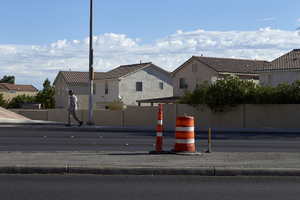
Pedestrian on East Sahara Avenue and Sandhill Road with homes looking north, Las Vegas, Nevada: digital photograph
Date
2017-09-14
Archival Collection
Description
A pedestrian walks along East Sahara Avenue at the Freeway overpass near Sandhill Road.
Image

Traffic flows on next to a neighborhood that bounds the freeway overpass on East Sahara Avenue near Sandhill Road looking north, Las Vegas, Nevada: digital photograph
Date
2017-09-14
Archival Collection
Description
Traffic flows on East Sahara Avenue near Sandhill Road. This neighborhood sits just below the freeway overpass.
Image

Traffic on East Sahara Avenue and the US 95 freeway overpass looking east, Las Vegas, Nevada: digital photograph
Date
2017-09-14
Archival Collection
Description
Traffic flows on East Sahara Avenue near the US 95 freeway overpass.
Image
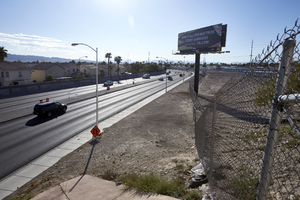
Traffic on East Sahara Avenue and the US 95 freeway overpass looking east, Las Vegas, Nevada: digital photograph
Date
2017-09-14
Archival Collection
Description
Traffic flows on East Sahara Avenue near the US 95 freeway overpass.
Image
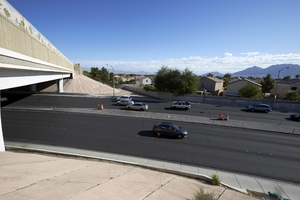
Neighborhood near the freeway overpass at East Sahara Avenue and Sandhill Road looking north, Las Vegas, Nevada: digital photograph
Date
2017-09-14
Archival Collection
Description
A neighborhood shares East Sahara Avenue with a freeway overpass near Sandhill Road.
Image
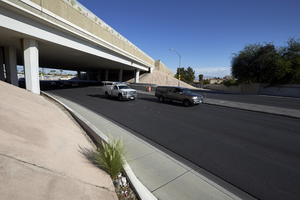
Traffic flows under the freeway overpass at East Sahara Avenue and Sandhill Road looking west, Las Vegas, Nevada: digital photograph
Date
2017-09-14
Archival Collection
Description
Traffic flows under the freeway overpass at East Sahara Avenue near Sandhill Road.
Image
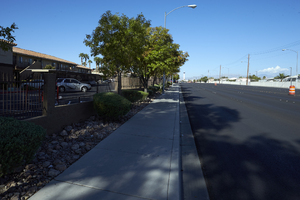
Arcadia Palms Apartments on East Sahara Avenue near Sandhill Raod looking west, Las Vegas, Nevada: digital photograph
Date
2017-09-14
Archival Collection
Description
The Arcadia Palms Apartments as seen from East Sahara Avenue near Sandhill Road.
Image
Pagination
Refine my results
Content Type
Creator or Contributor
Subject
Archival Collection
Digital Project
Resource Type
Year
Material Type
Place
Language
Records Classification
